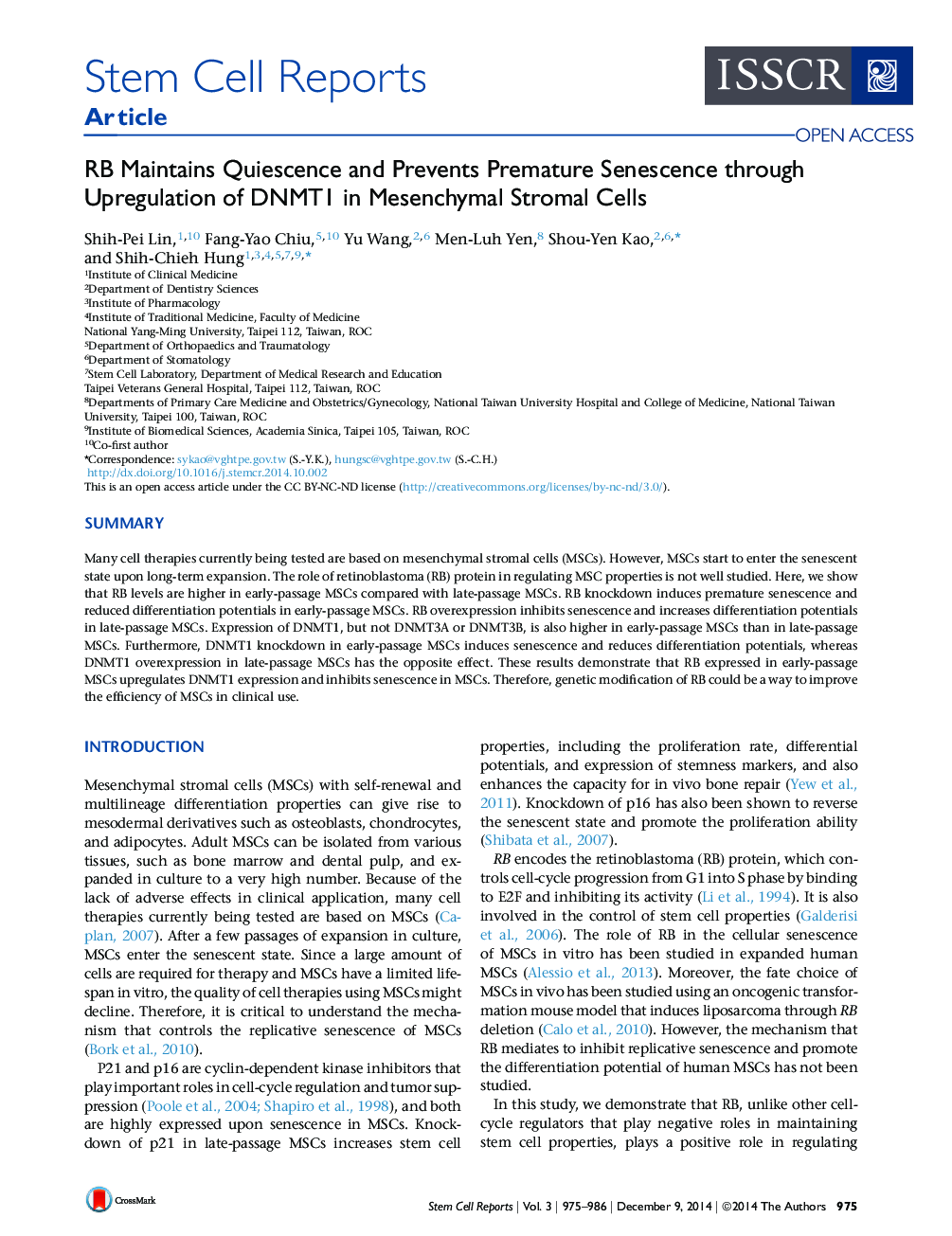| Article ID | Journal | Published Year | Pages | File Type |
|---|---|---|---|---|
| 2093678 | Stem Cell Reports | 2014 | 12 Pages |
•RB levels are higher in early-passage MSCs than in late-passage MSCs•RB knockdown induces a premature senescence and reduces differentiation potentials•RB overexpression reverses senescence and increases differentiation potentials•RB upregulates DNMT1 to inhibit senescence and promote differentiation potentials
SummaryMany cell therapies currently being tested are based on mesenchymal stromal cells (MSCs). However, MSCs start to enter the senescent state upon long-term expansion. The role of retinoblastoma (RB) protein in regulating MSC properties is not well studied. Here, we show that RB levels are higher in early-passage MSCs compared with late-passage MSCs. RB knockdown induces premature senescence and reduced differentiation potentials in early-passage MSCs. RB overexpression inhibits senescence and increases differentiation potentials in late-passage MSCs. Expression of DNMT1, but not DNMT3A or DNMT3B, is also higher in early-passage MSCs than in late-passage MSCs. Furthermore, DNMT1 knockdown in early-passage MSCs induces senescence and reduces differentiation potentials, whereas DNMT1 overexpression in late-passage MSCs has the opposite effect. These results demonstrate that RB expressed in early-passage MSCs upregulates DNMT1 expression and inhibits senescence in MSCs. Therefore, genetic modification of RB could be a way to improve the efficiency of MSCs in clinical use.
Graphical AbstractFigure optionsDownload full-size imageDownload as PowerPoint slide
